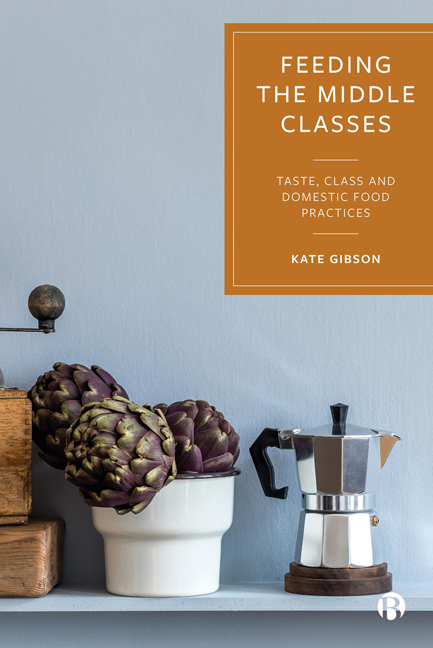Book contents
- Frontmatter
- Contents
- List of Figures and Table
- Acknowledgements
- 1 Introduction
- 2 Class, Consumption and the Domestication of Food
- 3 Talking Food: Classed Narratives, Social Identities and Biographical Transitions
- 4 Homemade Food: Individualized Processes of Household Investment
- 5 Culinary Capital: Knowledge, Learnt Practice and Acquired Taste
- 6 Conclusion
- References
- Index
1 - Introduction
Published online by Cambridge University Press: 27 March 2024
- Frontmatter
- Contents
- List of Figures and Table
- Acknowledgements
- 1 Introduction
- 2 Class, Consumption and the Domestication of Food
- 3 Talking Food: Classed Narratives, Social Identities and Biographical Transitions
- 4 Homemade Food: Individualized Processes of Household Investment
- 5 Culinary Capital: Knowledge, Learnt Practice and Acquired Taste
- 6 Conclusion
- References
- Index
Summary
Food is a biological necessity; we need to eat to live. But living through food extends beyond sustaining our bodies with the nutrients it provides. The materiality of food also sustains a range of social and cultural arrangements, including relations of power. What we eat, or not, carries social messages about social categories such as nationality, gender, ethnicity, and class and as such is central to our identity. While some things are naturally inedible, some things are culturally and socially disgusting.
This book is about food and class, the middle classes to be more specific. Consider these two narrative descriptions. They come from two of the 27 middle-class participants who contributed to this study. I had asked them if they could talk me through the contents of their refrigerators. At face value, they appear to be just that: lists of foods in a fridge. However, closer scrutiny of these descriptions lays bare a whole range of wider social and cultural processes and meanings. Starting with Fiona, we learn that she buys black pudding for her partner, despite her distaste for it, and that she is open to trying new foods. We learn that while her fridge contains several global foods, which she confidently lists, she questions the presence of pre-packaged sweet chilli stir-fry sauce. She concludes the narrative by jokingly pointing towards a bottle of champagne. With Jane, we learn that she differentiates between cow’s milk, which ‘doesn’t feel right’, and cheese, which she happily eats despite the obvious contradiction. We learn that she enjoys baking and spends time on it – the feeding of the sourdough starter is a continual process. What is particularly interesting is that the descriptions Fiona and Jane employ, position the foods listed as ordinary. They are ‘just the usuals’, as Jane suggests. Throughout this research, I was shown a range of household foods, some of which were expensive and specialist and required specific culinary knowledge and commitment. But despite these foods being anything but ordinary, their positioning as unremarkable highlights the salient ways that food practices can be normalized. I want to explore how class is implicated in this process.
- Type
- Chapter
- Information
- Feeding the Middle ClassesTaste, Class and Domestic Food Practices, pp. 1 - 19Publisher: Bristol University PressPrint publication year: 2023



